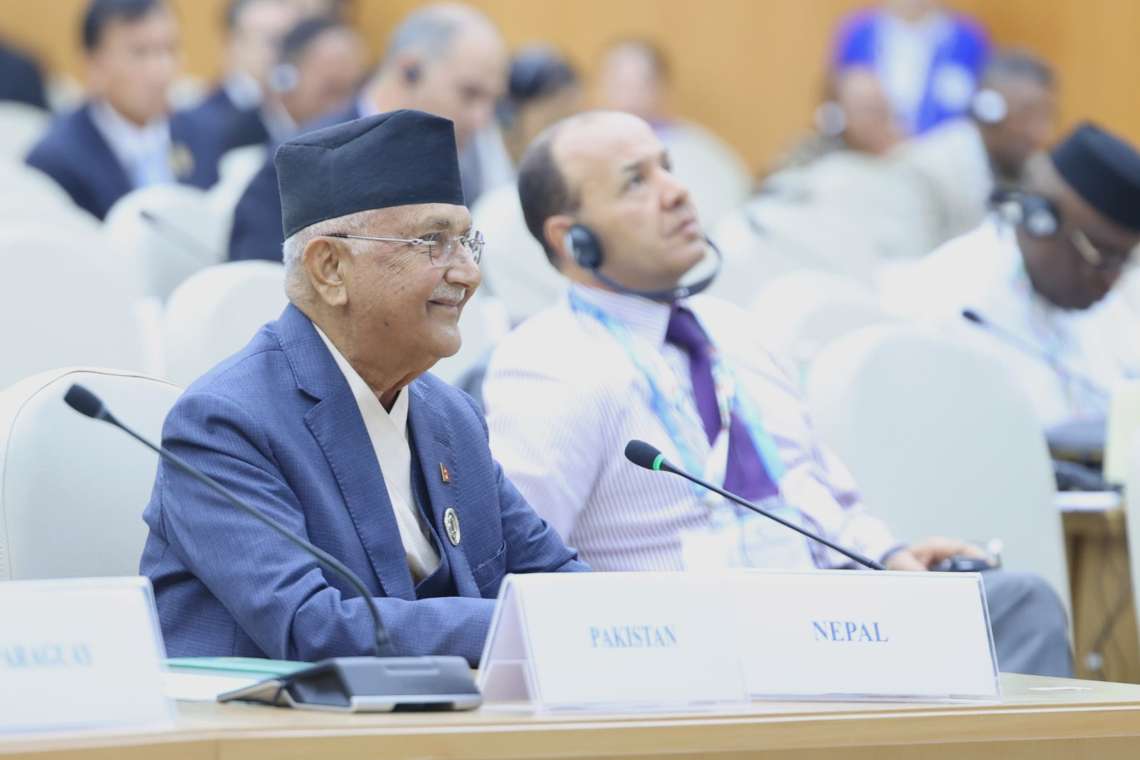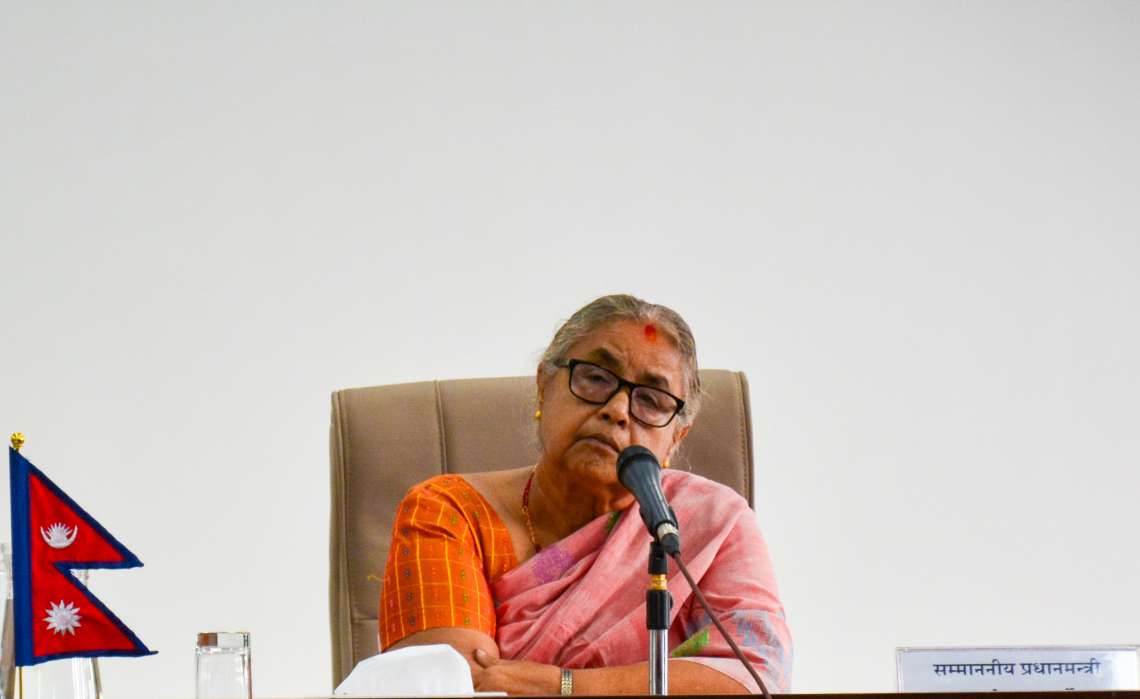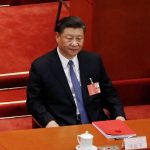Though Prime Minister Narendra Modi was the first to congratulate Prachanda, China sent multiple messages that attest to engagement with and interest in recent developments in Nepal…reports Asian Lite news
After Pushpa Kamal Dahal “Prachanda” was sworn in as Nepal’s new Prime Minister, Kathmandu might recalibrate a new momentum in India-Nepal ties, as well as China-Nepal relations.
Pushpa Kamal Dahal “Prachanda who is seen as pro-China, has in the past said a new understanding with India needed to be developed on the basis of a “changed scenario” in Nepal and after addressing all outstanding issues, like a revision of the 1950 Friendship Treaty and resolving Kalapani and Susta border disputes. Nepal’s foreign policy has primarily progressed on the principle of tapping India-China trade and investment rivalry in the country to gain a strategic advantage in the region.
Dahal, an avowed communist said immediately after his swearing in as Prime Minister that he would maintain friendly ties with both India and China.
India and Nepal share unique ties of friendship and cooperation.
The India-Nepal Treaty of Peace and Friendship of 1950 forms the bedrock of the special relations between the two countries.
Both countries share close and friendly relations characterized by age-old historical and cultural linkages, open borders and deep-rooted people-to-people contacts.
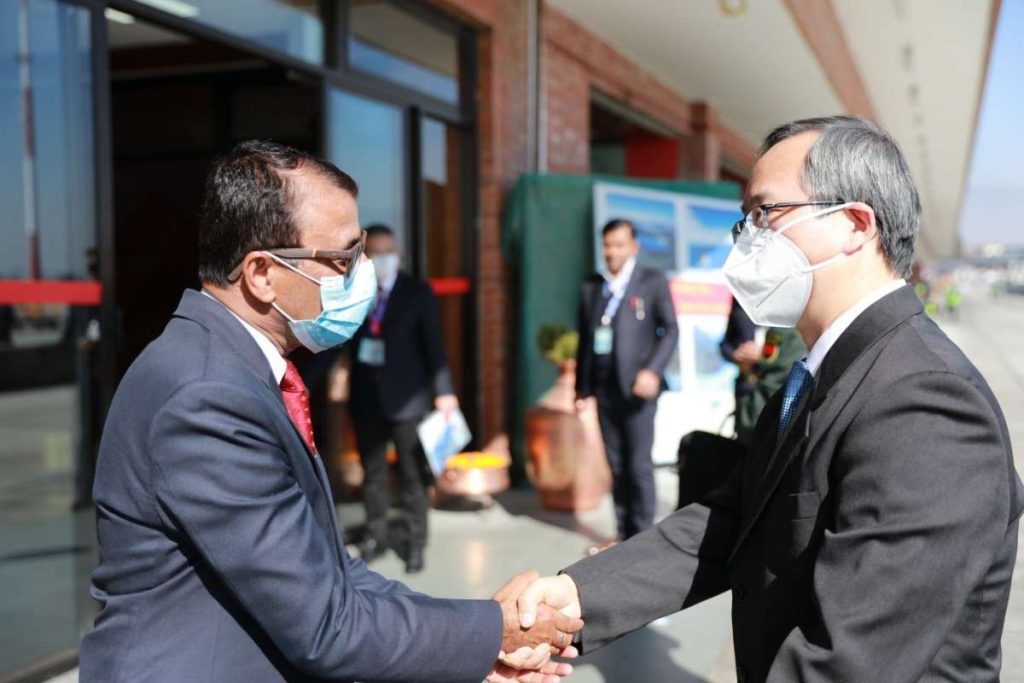
With regular exchanges of high-level visits and interactions, the two nations have further elevated their strategic relation.
Economic cooperation has been one of the leading focal points shared between the two nations, as India is Nepal’s largest trading partner.
India’s contribution to the connectivity and development partnership in Nepal has been one of the major aspects of its foreign policy.
India’s development assistance to Nepal has focused on the creation of infrastructure at the grass-roots level.
Various projects have been implemented in the areas of infrastructure, health, water resources, education, and rural and community development.
India’s involvement in Nepal has been informed by its principle of ‘Vasudhaiva Kutumbakam’ and the policy of ‘Neighbourhood First.’ In this regard, India’s main focus has been to boost Nepal’s development through aid and grants for infrastructure development, human security, improvement in human development indicators, and supporting Nepal during adversities such as the 2015 earthquake.
India – Nepal relations have gone through several turbulent times and the relationship has come out stronger than before. The last few years have witnessed some such turbulences. With the Madhesi issue flaring up in 2015, some Nepali politicians blamed India’s hand behind this, although inconclusively.
The use of India as a punching bag for domestic politics by some Nepali leaders has become a common practice in recent times. This blame game can be attributed to such a practice. Nevertheless, it did batter India-Nepal relations to some degree, at least for the time being.
With KP Sharma Oli assuming charge of the PM of Nepal in 2018, some issues between India and Nepal relations started to come up.
The Oli government showed a clear inclination towards China and didn’t shy away from raking up issues ranging from territorial disputes in Limpiyadhura, Kalapani and Lipulekh to questioning the birthplace of Lord Ram. The erstwhile PM even went on to blame India for the spread of Coronavirus in Nepal terming it the “Indian virus.”
Analysts suggest that such an anti-India stance is a reflection of political instability in the domestic politics of Nepal and is often instigated by China.
Nevertheless, with Sher Bahadur Deuba taking over the premiership of Nepal, the ties began to get better again. It touched a watershed mark by visiting Lumbini, the birthplace of Gautama Buddha, on Buddha Purnima this year.
This overture by Prime Minister Narendra Modi not only conveyed how valued our shared culture is for the two neighbours but also indicated the importance and emphasis being made on mending the ties at the highest levels.
And now, with the conclusion of the recent general elections in Nepal and Pushpa Kumar Dahal “Prachanda” sworn in as the new PM of Nepal on December 25, 2022, a new chapter of India – Nepal relations could be open which can reinforce the political, economic and cultural ties between the two neighbours.
Though PM Modi was the first to congratulate Prachanda, China sent multiple messages that attest to engagement with and interest in recent developments in Nepal.
China’s acting ambassador met Prachanda to congratulate him the same day as his elevation and conveyed that Beijing had lifted the suspension of business and supply of goods from the Rasuwa-Kerung and Hilsa-Parang 2 checkpoints that had not been commissioned for use since the Covid-19 pandemic hit.
In its first official reactions after the polls, the Chinese foreign ministry said that it was looking forward to working together with Nepal on BRI projects. The break up of the Deuba-Prachanda alliance and the fact that Oli — the man who put up a brave front to India during the blockade in the later half of 2015 — signed trade and transit agreements with China in retaliation when confronted on the border issue seems to once again be at the centre of Beijing’s plan to make deeper inroads into Nepal.
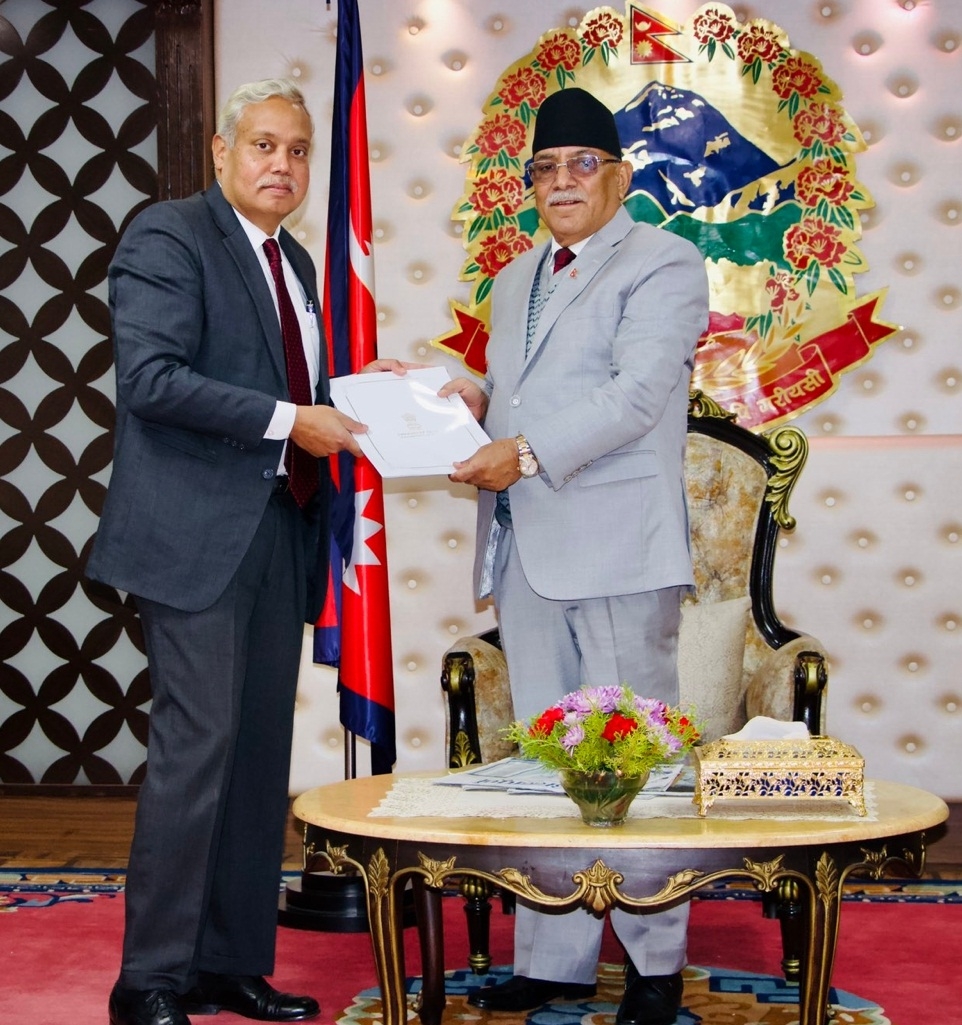
Other Chinese gestures point towards this well. A day before the Indian ambassador called on Prachanda, and even before the government was confirmed by parliament majority, a high-level Chinese team was already in Kathmandu to conduct a feasibility study for the ambitious Kerung-Kathmandu railway line, a major project under the BRI.
Notably, Dahal inaugurated the country’s third international airport, built in the backdrop of the Annapurna Mountain Range with Chinese loans and donations.
Ahead of the inauguration of Nepal’s new Pokhara airport, in a surprise announcement, the Chinese Embassy in Kathmandu tweeted, “This (Pokhara airport) is the flagship project of the China-Nepal Belt and Road Initiative (BRI) cooperation,” writes Anil Giri, in The Kathmandu Post.
The Chinese Embassy tweet comes at a time when Kathmandu reiterated that no project under Beijing’s Belt and Road Initiative has been signed and Nepal and China are working to finalize the text of project implementation under the BRI, reported The Kathmandu Post.
In the race of building and inaugurating airports across Nepal, the Himalayan Nation has taken a soft loan from China amounting to 215.96 million USD in March of 2016. The Civil Authority of Nepal and the China EXIM Bank had signed the agreement where China CAMC Engineering was given the construction contract.
China’s Exim Bank had agreed to provide 25 per cent of the loan free of interest and set the interest rate at two per cent per annum for the rest of the amount, with a payback period of 20 years.
It is quite evident that through its debt diplomacy, China is encircling Nepal. Also, newly appointed Chinese envoy to Nepal Chen Song reiterated that China is willing to work with Nepal to seek common development.
China’s new envoy also stressed that he we ready to work with his Nepali friends “to unleash the full potential of China-Nepal cooperation.”
“I, together with my colleagues in the Embassy, stand ready to work with Nepali friends from all walks of life to unleash the full potential of China-Nepal cooperation, and elevate the bilateral relations to a new height,” he added. (ANI)



